Across China: Mounted police, guardians of the grassland
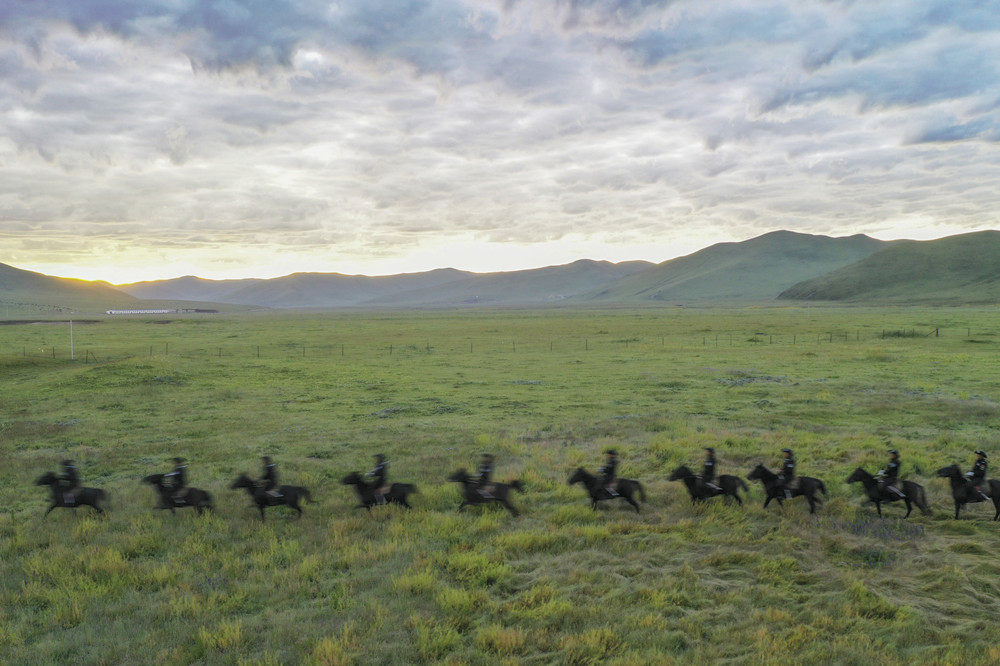 As the sun rises, a sea of pink clouds surrounds the green grassland, with shadows of a row of mounted police appearing from time to time on the golden horizon on Aug. 15. Tse-nga and a dozen of his colleagues start their daily training on horseback.
As the sun rises, a sea of pink clouds surrounds the green grassland, with shadows of a row of mounted police appearing from time to time on the golden horizon on Aug. 15. Tse-nga and a dozen of his colleagues start their daily training on horseback.
Chasing, shooting and bayoneting -- two hours of skill training every morning has become Tse-nga's "compulsory course" for 18 years to better protect about 40,000 local herdsmen in Maqu County, northwest China's Gansu Province, where the first meander of the Yellow River flows.
Located on the Qinghai-Tibet Plateau, with an average elevation of about 3,500 meters, Maqu once experienced a long, hard time working in public security management, as residents there live in scattered places. In the early 21st century, livestock theft occurred frequently in local pastures and inter-provincial border areas, causing a huge economic loss for herders.
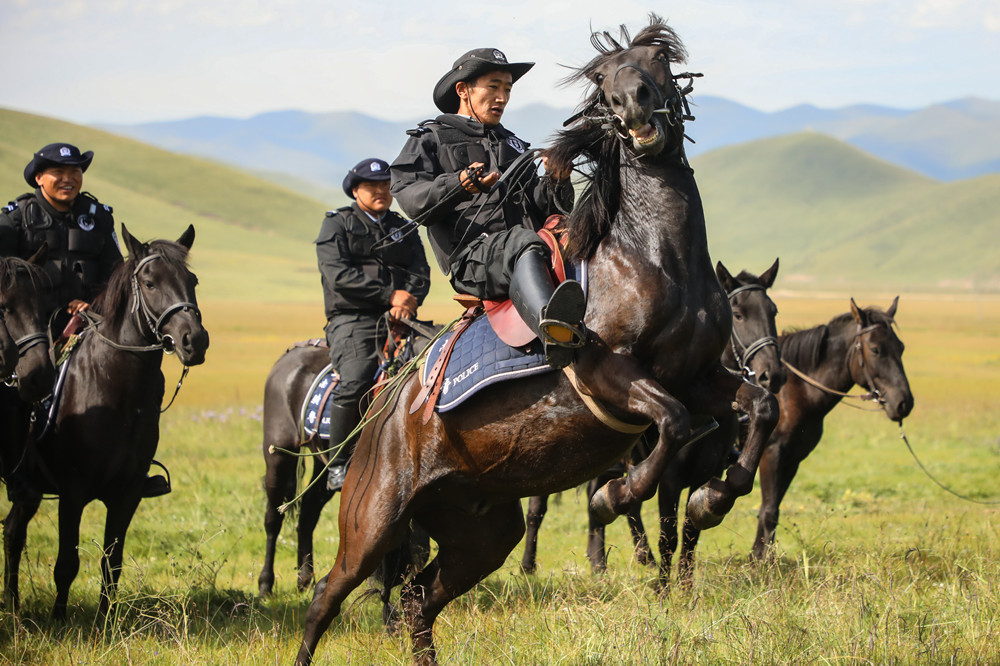
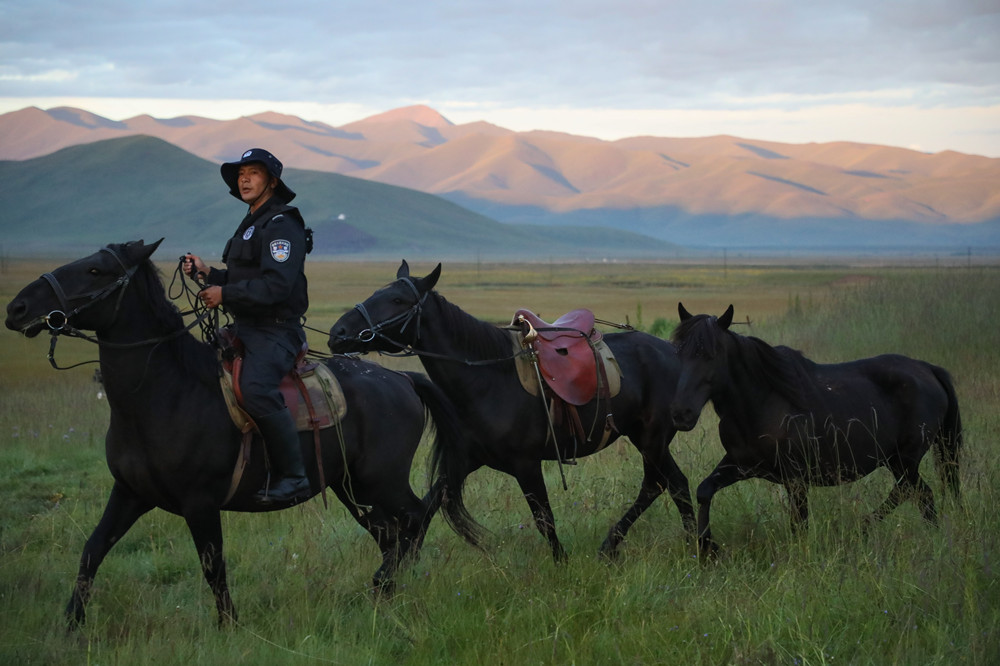 In November 2003, the grassland mounted police force under the county's public security bureau was established, in a bid to carry out security guard patrol and management on vast grassland and inter-provincial border areas.
In November 2003, the grassland mounted police force under the county's public security bureau was established, in a bid to carry out security guard patrol and management on vast grassland and inter-provincial border areas.
Tse-nga, who used to be a soldier, was among the first batch of the grassland mounted police. "Carrying tents and climbing mountains, we migrated with the herders all year around at first."
"As thieves were afraid to take the main roads, we had to patrol the rugged and swampy mountain roads, making horses, the most primitive means of transportation, the safest 'cars' on the grassland," he said.
According to the mounted police, they would scoop a ladle of water in the Yellow River and pour it on the Zanba, a staple food for Tibetans made of highland barley flour, whenever hungry. "When sleepy, the saddle would be our pillow and the coat as a quilt."
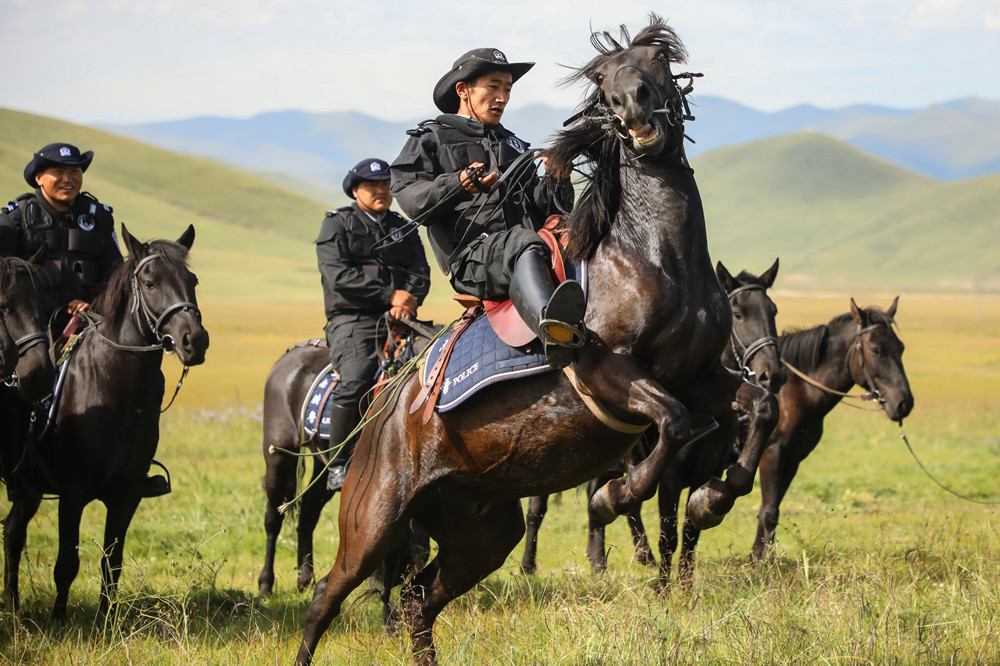
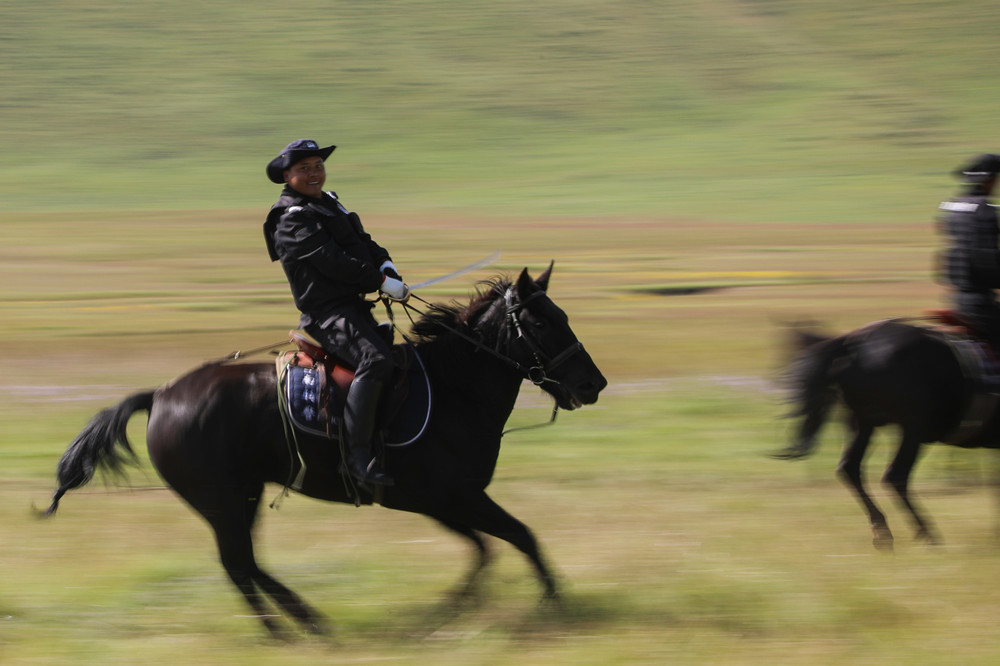 Even after 17 years, Tse-nga can still remember the first case he dealt with. "One night in 2004, a herder came to the tent where we were stationed and reported his more than 50 yaks were stolen. We then chased the suspects to the provincial border overnight and seized the gangster who hid in the grass, retrieving the lost 250,000 yuan (about 38,600 U.S. dollars)."
Even after 17 years, Tse-nga can still remember the first case he dealt with. "One night in 2004, a herder came to the tent where we were stationed and reported his more than 50 yaks were stolen. We then chased the suspects to the provincial border overnight and seized the gangster who hid in the grass, retrieving the lost 250,000 yuan (about 38,600 U.S. dollars)."
"The role of the grassland mounted police is obvious and long-lasting," said Song Wei, a senior official with the public security bureau in Maqu County. "Three months after the establishment of the force, the local livestock theft rate reported a yearly decrease of 70 percent. As the police, who are deeply trusted by the residents, have been eating and living with herders for many years, legal awareness of the locals has been greatly promoted."
In recent years, living conditions in China's pastoral areas have undergone tremendous changes, with herders moving in brick houses during the winter and the mounted police force having a fixed station. "The number of public security incidents in Maqu County has been largely reduced, and the grassland police have ushered in a new phase of anti-telecom fraud," Song said.
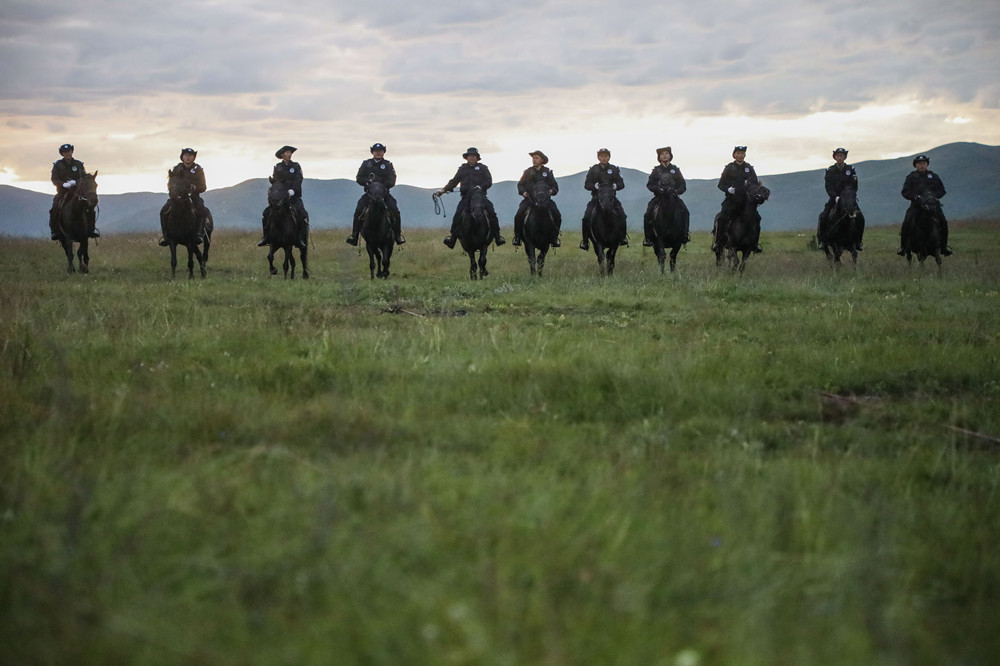 One afternoon in early August, Tse-nga and his colleague visited herdsman Dukar's home to update his family information and knowledge concerning telecom fraud. Last year, the grassland police helped the 41-year-old Tibetan herder find his more than 20 lost yaks.
One afternoon in early August, Tse-nga and his colleague visited herdsman Dukar's home to update his family information and knowledge concerning telecom fraud. Last year, the grassland police helped the 41-year-old Tibetan herder find his more than 20 lost yaks.
"The mounted police are a 'symbol of safety' on the grassland," said Dukar's daughter Tsering Lhamo.